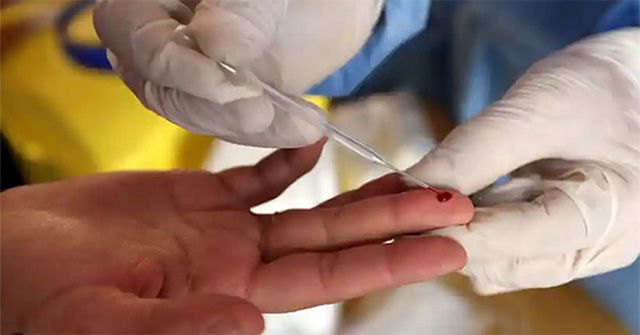
Breakthrough in Early Cancer Detection
A novel AI-powered device can detect three of the deadliest cancers within minutes using only a drop of dried blood.
Game-Changing Technology
Early trials conducted by Chinese researchers revealed that the device can effectively distinguish patients with pancreatic, stomach, or colorectal cancer from healthy individuals within minutes using a dried blood spot.
The device utilizes machine learning technology, a branch of AI, to analyze metabolites, byproducts of metabolism, present in the blood sample. These metabolites (found in the serum) serve as "biomarkers" capable of detecting the presence of cancer in the body, according to LiveScience on April 23rd.
Potential for Improved Cancer Care
Screening for biomarkers in blood has been proposed as a promising approach for diagnosing cancer at early stages when survival rates are higher and patients often lack noticeable symptoms.
Despite being among the most prevalent and deadly cancers worldwide, pancreatic, stomach, and colorectal cancers currently lack sufficiently reliable stand-alone blood tests for diagnosis. Instead, physicians typically rely on imaging or surgical biopsies to identify cancerous tissue.
The Chinese research team indicated that their device could theoretically diagnose the aforementioned cancers using less than 0.05ml of blood. The device also demonstrated high accuracy in distinguishing individuals with cancer from healthy controls.
Dried Blood Test Equates Liquid Blood Performance
Notably, the study found that the dried blood-based test performed as well as the liquid blood test. In one of the team's experiments, the dried blood test enabled them to detect 81.2% of pancreatic cancer cases, compared to 76.8% using liquid blood samples.
Advantages of Dried Blood
Dr. Chaoyuan Kuang, from the Albert Einstein College of Medicine in New York, who was not involved in the study, commented that dried serum, compared to liquid blood, can be "collected, stored, and shipped at lower cost and by much simpler logistics."
Future Outlook
While the device holds promise, Dr. Kuang cautioned that years of further research will be required before the test can be widely available.
Addressing Global Cancer Burden
Researchers estimate that approximately 75% of cancer deaths in 2030 will occur in low- and middle-income countries due to barriers to healthcare access.
The study authors suggest that the novel dried blood-based testing device could improve access to screening in resource-limited settings, such as remote regions.
The research was published in the journal Nature Sustainability.
